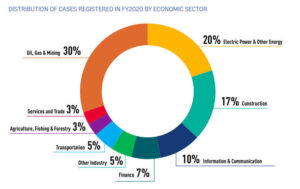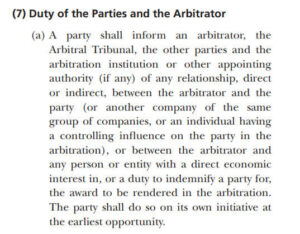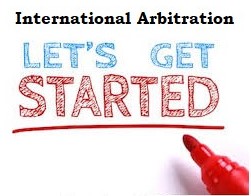It is rather common for international contracts to contain an arbitration clause providing for the institution of arbitration proceedings to resolve disputes between parties.[1] Although parties are not typically required to use lawyers in arbitrations, it is highly recommended for all but the smallest cases.[2] But, in reality, what do arbitration lawyers do? In the […]
International Arbitration
Limitation Periods for Enforcement of Foreign Arbitration Awards
One of the primary advantages of international arbitration as compared to litigation is the enforceability of arbitration awards internationally. However, the period in which international arbitration awards must be enforced internationally varies drastically depending on the place of enforcement. In the table below (Section IV), we provide a quick reference guide, summarizing the limitation periods […]
Resolving Energy Disputes Through Arbitration
Energy projects are usually long, complex and require a substantial level of capital. Additionally, the sector has significant exposure to geological events, political changes and environmental regulations. For these reasons, disputes are common in the energy sector, and arbitration has become the preferred method of resolving these disputes, particularly at the international level.[1] As noted […]
Do I Need a Lawyer to Represent Me in International Arbitration?
Do I need a lawyer to represent me in international arbitration proceedings? The short answer to this frequently-asked question is no – one does not generally need a lawyer in international arbitration proceedings under nearly all arbitration procedural rules and under most national laws. Under most institutional rules and arbitration statutes, parties are free to […]
Changing Lawyers During an International Arbitration
There are a variety of legitimate reasons why a party might wish to change lawyers over the course of an international arbitration, which can be a long and expensive procedure. A party may lose confidence in its lawyers: the quality, loyalty and vigor of a party’s representatives can have substantial consequences for the party’s opportunity […]
Commodity Arbitrations
Commodity arbitration involving international trade is one the oldest segments of international commercial arbitration, which has become more sophisticated and organized over the years. Commodity markets arose with the increase of trade volume, first in Great Britain in the nineteenth century, especially during the Victorian era, then in the rest of the world. Today, London […]
Laws Applicable to an International Arbitration
There are several different laws that are applicable to an international arbitration. Such laws include the law governing the arbitration (Section A), the law applicable to the merits of the dispute (Section B), the law applicable to the arbitration agreement (Section C), the law governing the parties’ capacity to arbitrate (Section D) and the law(s) […]
Disclosure of Third-Party Funding Agreements in International Arbitration
One heated debate concerning third-party funding in international arbitration is the disclosure of third-party funding, as third-party funders may be acting behind the scenes to finance an arbitration. Whether disclosure extends only to the funder’s identity or also to the integrality of the funding agreement, the question of disclosure is relevant to achieve a balance […]
How to Initiate International Arbitration
Initiating international arbitration is a rather simple process, which can be done by lawyers or even non-lawyers: In ad hoc arbitrations, normally, it requires only the service of a “Notice of Arbitration” to the respondent. In administered arbitrations, usually, it requires submission of a “Notice of Arbitration” or a “Request for Arbitration” before the competent […]








